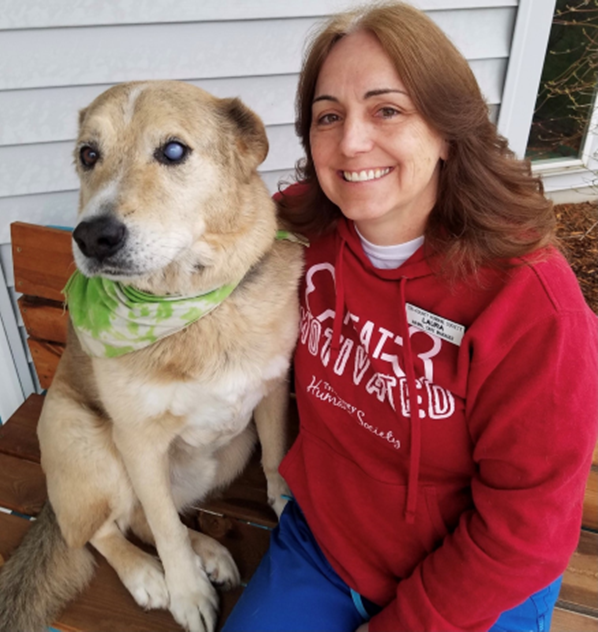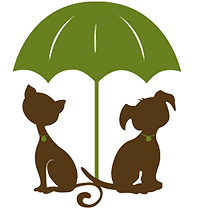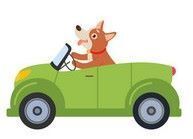
As pandemic restrictions loosen, most of us will find we are spending more time away from home. However, our dogs have become accustomed to us being constantly by their side—letting them out whenever they go to the door, or just spending more time cuddled up next to us on the couch.
Dogs are very social creatures and enjoy having us around. There will be an adjustment period, to some degree, for all dogs as we resume normal activities. There are many ways dogs suffering from separation anxiety act out. They may urinate, defecate, bark, chew, or dig. Another more extreme behavior is to try to escape through windows and/or doors, which may result in self-injury and/or destruction of your home.
If you think about it, their normal routine will be changing right along with ours. When you prepare to leave the house, your dog might pace, bark, or whine. It’s tough to leave them when you hear the distressful behavior. However, upon returning your dog might act as if he hasn’t seen you in years.
It is recommended that you maintain a normal routine by scheduling walks and feedings around the same time every day. If possible, some physical exercise prior to leaving the house may help to work off your dog’s energy. Also, finding short periods of time your dog can spend alone when you are home can help smooth the transition. Set up a comfy bed in another room that’s gated off or set up a crate with a radio or TV playing to drown out noise you might make in other parts of the house. Your routine when leaving should remain the same whether it is for work or just running out to the mailbox. Puzzle toys and easily digestible chews like bully sticks keep your dog busy for a little while. You should “practice” leaving at least once a day.
Seven years ago, I adopted Timber, a husky/shepherd mix, with an extreme case of separation anxiety. With appropriate time, work, and plenty of patience, he has become the most well-behaved, amazing companion. Instead of acting out in distress, he understands that I will always come back and has developed patience. He does still get a little anxious when he sees us packing the camper because he doesn’t want us to leave him behind. He loves to camp!
We are so happy that despite the pandemic our adoptions have continued to climb. That means a lot of you appreciate the company of a four-legged companion. We all want the best for our pets, and this sometimes means we need to take the extra time to make them as happy and comfortable as they make us.
Here are some more tips about separation anxiety, from the ASPCA:
What to Do if Your Dog Becomes Distressed:
If your dog barks, cries, whines or scratches at the door during alone time while you are in the house, try to wait him out. Most dogs will give up after a few minutes and go to sleep. If he persists or the behavior escalates, you may need to do something to distract him (such as knocking on the door and saying “Quiet!”) and then, after a few seconds of him being quiet, praise him and let him out. Next time, provide him with more enticing goodies and be sure to let your dog out of their alone space while they are still engaging in their puzzle toy or chew and before they begin vocalizing or scratching at the door. Just minutes per day is a good place to start.
If your dog is happily engaged in activities or resting, you can allow him to practice being alone for gradually longer stretches of time. If your dog is only distressed when you’re in another part of the house, you may opt not to worry about it and simply maintain a routine of leaving your dog home alone while you leave the house for a short period of time each day. The important take-away is that your dog routinely spends time away from the family while you stay at home and that your dog is not distressed during those periods of alone time.
What NOT to Do:
Do not scold or punish your dog. Anxious behaviors are not the result of disobedience or spite. Your dog displays anxious behaviors when left alone because he’s upset and trying to cope with a great deal of stress. If you punish him, he may become even more upset and the problem could get worse.








